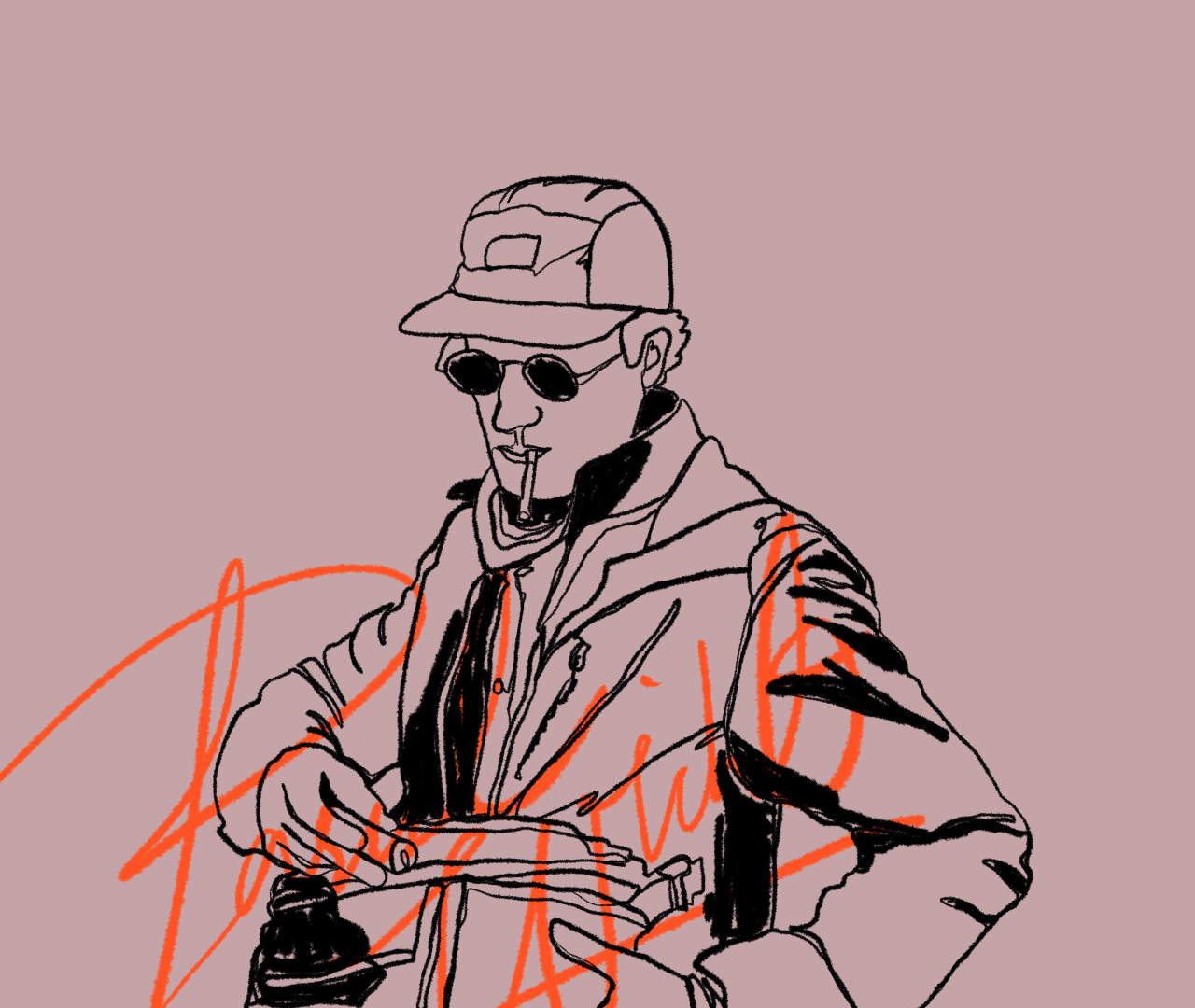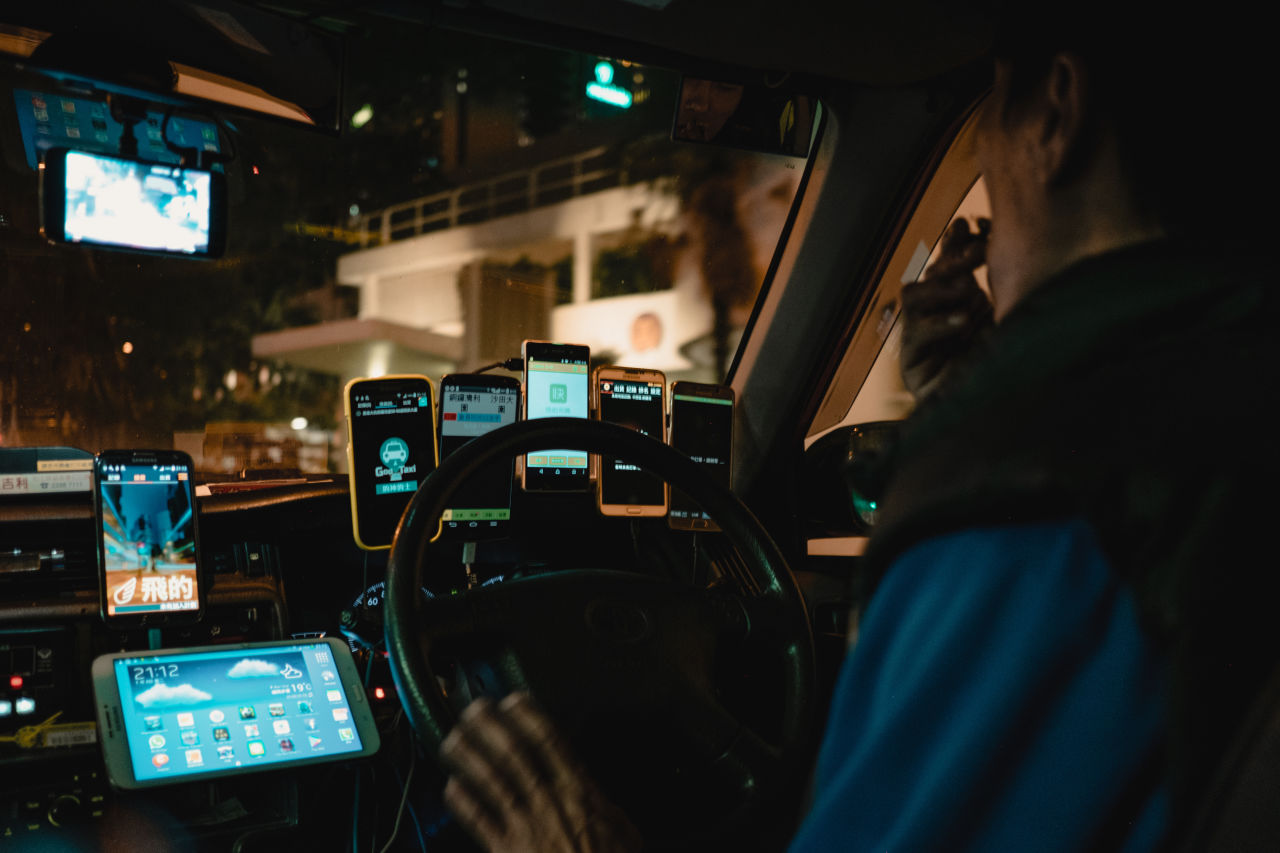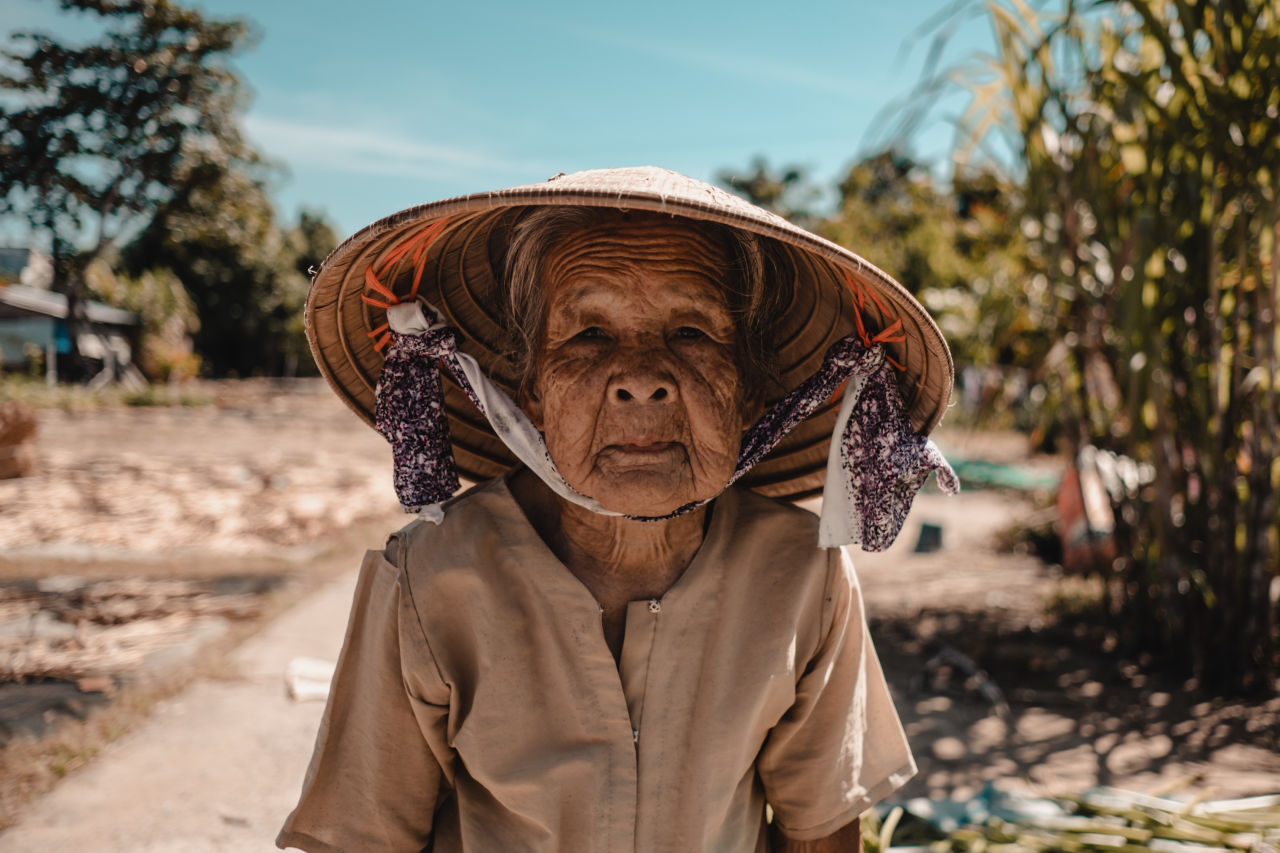Interview with Pascal Wicht, Founder of Whispers & Giants

Pascal Wicht portrait by Tia Alisha
Pascal Wicht is the founder of Whispers & Giants, a discreet Swiss design studio evolving at the intersection of ethnography, futures, and strategy. Whispers & Giants run ethnographic field research all over the world.
In recent years, Pascal has conducted research for international corporations and non-profits, ranging from the adoption of mobile money in the Horn of Africa, migration, aging and social work in Switzerland, futures of mobility and social credit systems in China and IoT security in the shifting energy market.
Pascal is also a regular speaker on the topic of cross-generational intelligence at IMD in Lausanne, in the Leading in a Digital Age program, and he’s also a guest critic at the EPFL+ECAL Lab design research and innovation center
All of the photos included in this article have been taken by Pascal in the field while researching the future of megacities in Hong Kong, the adoption of organic rice farming in Vietnam, and the future of education in Jordan.
What’s your organization’s mission?
Pascal: About twelve years ago—after quite a while in the agency world doing creative direction in branding and UX—I started learning and putting into practice the frameworks of future research. Later, thanks to the work related to the scanning of early signals of change and socio-cultural trends, I studied how qualitative research is practiced by academics.
Today, I have started my own design and strategy studio called Whispers & Giants. Its mission is to help organizations make sense of the world, with both its growing problems and with its diversity of life and intelligence. I help leaders reframe challenges, make sense of change, and imagine positive futures and new services or products.
How does user research work at Whispers & Giants?
Pascal: Exploration projects usually require us to interview and observe people in a lot of different contexts. When the client takes part in the initial sampling of participants, this part of the process usually reveals a lot about the client’s ‘dark matter’. These insights upstream of the research are often very helpful not only for the design of the delivery but also help build the story about the research during the project. It also helps unpack the assumptions and biases we’re swimming in at the start of projects.
Sometimes, in order to truly make sense of the rules, you need to cross some institutional boundaries and see how the system reacts.
More and more research involves mapping the interactions between users and the backstage reality of services. For example, when exploring the reality of migrants hosted in Swiss underground bomb shelters—as traditional housing structures were overwhelmed by massive arrivals—the key in our approach was a positive collaboration with the local staff and their partners. Sometimes, in order to truly make sense of the rules, you need to cross some institutional boundaries and see how the system reacts.

All of the photos are taken by Pascal in the field while researching the future of megacities in Hong Kong, the adoption of organic rice farming in Vietnam, and the future of education in Jordan.
Could you describe a recent user research project?
Pascal: I recently explored the future of business schools from a future customer perspective and to unpack the narrative of degree programs (MBAs) for tomorrow’s generations. There, we used a mix of in-depth interviews, shadowing, jobs to be done and service design blueprinting.
When working and presenting to faculty teachers, we needed to make sure our sampling process, our triangulation, coding, and saturation was rock-solid. An auditorium packed with forty world-class faculties is not like the usual strategic committee. The biggest surprise in this research was how many stories exist across organizational boundaries as deep social realities. It revealed a lot about how, in the face of our global shifts and challenges, the current corporate vanilla culture was becoming a thin and cracking veneer.
What software does your organization use? What have you tried in the past? What’s been working well?
Pascal: We rely a lot on Notion, but also Google Drive, Dropbox, and Slack. Notion is extremely powerful and allows us an incredible degree of customization and scalability. For specific tasks, we rely on apps like Experience Fellow which can be really helpful. Otherwise, besides using Dovetail a lot now, in the past, I’ve relied on the traditional combo of notepads and tons of sticky notes for data walls.
What challenges do you have with user research?
Pascal: The biggest challenge is more and more on the side of the client’s immune system and metabolism. Today’s issues require us to overcome a lot of internal status quo and collapse of the collective imaginary. This is not an easy time for many actors, and it’s important to take that into account.
Many societies are primarily contributive and not salary-based. This fundamentally changes the social fabric of how people and families rely on each other.
Also, when working with westerners it isn’t always easy to overcome some cultural barriers in their difficulties to understand and interact with different ways of being or belonging to the world. For example, in many cultures and languages, the use of the “I” pronoun is fundamentally different from how a westerner would conceive it and often expresses a collective “we”.
How time is perceived also means a lot. Many societies are primarily contributive and not salary-based. This fundamentally changes the social fabric of how people and families rely on each other. Then there is time perception, fate, or health cultural models that deeply differ from the western perspective.
What’s changing about user research at Whispers & Giants?
Pascal: I think it’s about going beyond the design culture of research where the notion validity is not always a well-defined concept. I find myself doing more and more ‘sensemaking interviews’ where I mix workshop techniques of mapping and visualization with more divergent thinking cognitive modes in order to weave stories and internal strategic insights across business units and silos. This is becoming a really fast and effective way of providing teams with a mutual clarity and common ground, and it’s a really fun moment.

All of the photos are taken by Pascal in the field while researching the future of megacities in Hong Kong, the adoption of organic rice farming in Vietnam, and the future of education in Jordan.
Why do you do what you do?
Pascal: I started this company with a few aims.
First I think there is my inner curiosity and need to travel to explore the world. Then, I really think that the business world is stuck with counterproductive myths and models. Therefore in the face of our civilizational challenges, imagination is fundamental to escape the weight of the past. And finally about research, not only is the whole exploratory and digging process fascinating, but the coding work is among the most pleasant things to do. I’ve always had a taste for complex and entangled problems.
Any advice for new user researchers?
Pascal: I was doing design research like many designers with the academic approach and discipline in my blind spot. Then I got really lucky to work with talented researchers that showed me a couple of tricks about sampling, snowballing, and saturation. I would recommend taking the time to examine the different approaches to coding and what they mean for the research.
When you interact with another culture, it usually reveals a lot about yourself; your worldview. And in my opinion that’s a really good start. You can’t think out of the box, unless you start to define it.
Having lived in Africa for quite a while working with westerners who were there on missions, I noticed how much of an issue ethnocentrism really is. It’s not limited to white Europeans though. For example, the Chinese I met in Mozambique were also experiencing it, yet from a totally different angle. When you interact with another culture, it usually reveals a lot about yourself; your worldview. And in my opinion, that’s a really good start. You can’t think out of the box, unless you start to define it.
I grew up without TV, so I’m a radio addict. In terms of podcasts, I enjoy the Popular Front Podcast, Hidden Forces, and Emerge. In terms of books I recommend Jan Chipchase’s book the Field Research Handbook, Lean Logic, Dark Matter and Trojan Horses, and Design When Everybody Designs.
Subscribe to Outlier
Juicy, inspiring content for product-obsessed people. Brought to you by Dovetail.